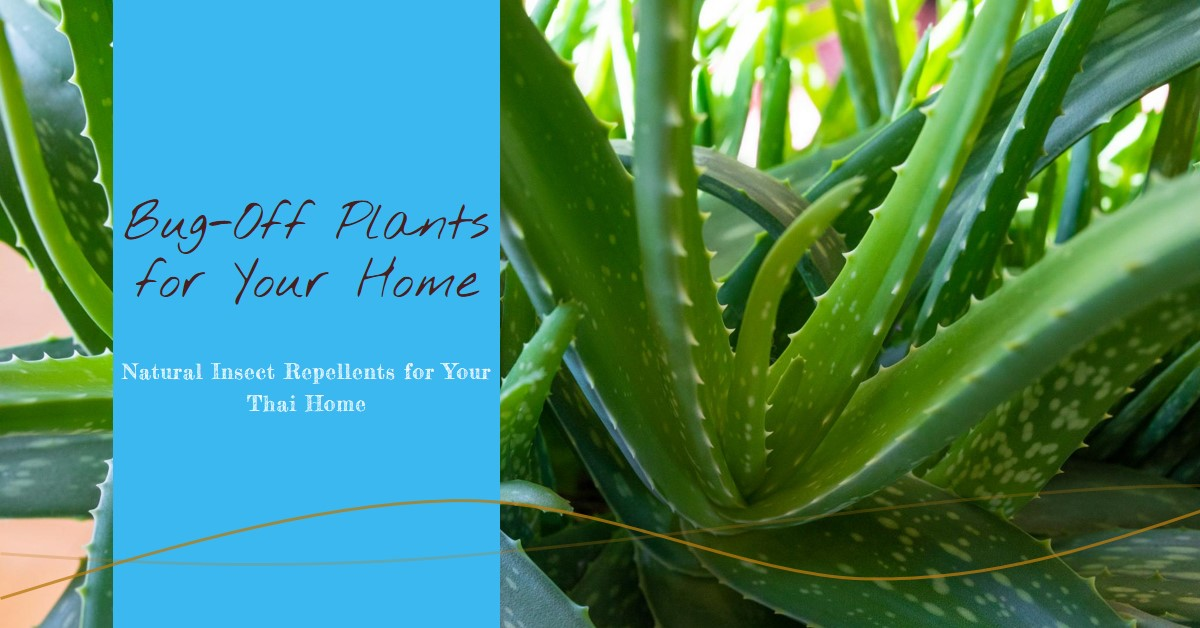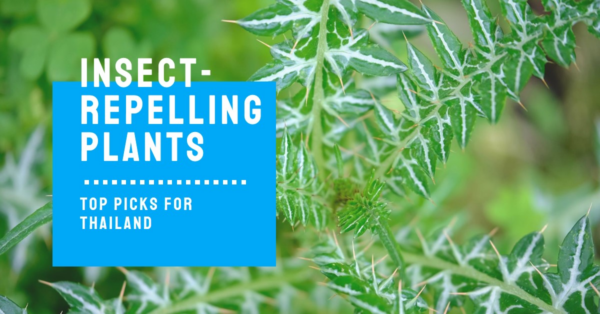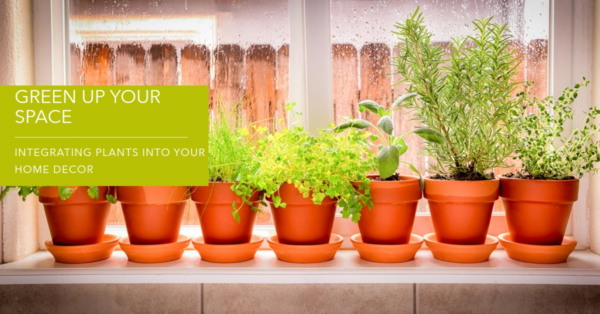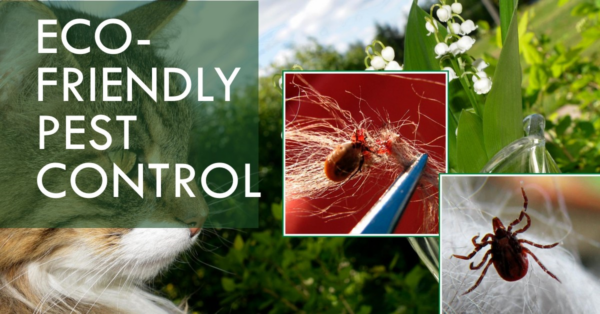
The Best Plants To Have In Your Home To Help With Insects In Thailand
Introduction
Living in the tropical paradise of Thailand comes with its share of joys and challenges, one of which is dealing with insects. Whether it’s the buzzing of mosquitoes, the invasion of ants, or the nuisance of flies, these pests can disrupt the tranquility of your home. However, rather than resorting to harsh chemicals, you can harness the power of nature to keep these pests at bay. In this comprehensive guide, we’ll explore the best plants to have in your Thai home to naturally repel insects, ensuring a peaceful and bug-free living space for you and your family.
Chapter 1: Understanding the Pest Problem in Thailand
Before we delve into the solutions, let’s understand the common pests that plague households in Thailand. Mosquitoes, notorious for transmitting diseases such as dengue fever and malaria, are a significant concern, particularly during the rainy season. Ants, both the tiny sugar ants and the larger black ants, can quickly overrun your kitchen in search of food. Flies, attracted to organic matter, can be a nuisance indoors and outdoors. Additionally, moths, fleas, and cockroaches are among the other pests commonly encountered in Thai homes.
Chapter 2: The Science of Natural Pest Repellents
Nature provides us with an array of plants that produce compounds known to repel insects. These natural repellents work by emitting scents that insects find unpleasant or by containing compounds that interfere with their sensory receptors. Unlike synthetic pesticides, which can have harmful effects on humans and the environment, natural repellents offer a safer and more sustainable alternative.

Chapter 3: Top Plants for Repelling Insects in Thailand
Citronella: Renowned for its mosquito-repelling properties, citronella emits a strong citrus scent that masks the odors that attract mosquitoes. Planting citronella in pots or in your garden can help create a barrier against these blood-sucking pests.
Lemongrass: Not just a culinary herb, lemongrass contains citronella oil, making it an effective mosquito repellent. Its tall, grassy stalks add a touch of greenery to your surroundings while keeping mosquitoes at bay.
Basil: This aromatic herb not only enhances the flavor of your dishes but also repels flies and mosquitoes with its strong scent. Plant basil near doorways and windows to prevent insects from entering your home.
Mint: With its refreshing fragrance, mint is a natural deterrent for ants, mosquitoes, and flies. Planting mint in pots around your home can help create a barrier against these pests while adding a burst of flavor to your meals and beverages.
Lavender: Known for its soothing aroma, lavender is a natural repellent for moths, fleas, and flies. Plant lavender in your garden or keep dried lavender sachets indoors to ward off these pests.
Marigold: With its vibrant blooms and distinct scent, marigold not only beautifies your garden but also repels mosquitoes and other insects. Plant marigolds around outdoor seating areas to create a bug-free zone.
Catnip: While cats may be drawn to it, catnip repels mosquitoes thanks to its active compound, nepetalactone. Plant catnip in pots near windows and outdoor seating areas to keep mosquitoes at bay.
Chapter 4: Tips for Plant Care and Maintenance
To ensure that your insect-repelling plants thrive, it’s essential to provide them with proper care and maintenance. Here are some tips to help your plants flourish:
- Sunlight: Most insect-repelling plants thrive in full sunlight, so place them in areas where they can receive at least six hours of sunlight per day.
- Watering: While these plants require regular watering, it’s essential not to overwater them, as this can lead to root rot. Allow the soil to dry out slightly between waterings.
- Pruning: Regularly prune your plants to remove dead or damaged foliage and encourage healthy growth.
- Fertilization: Apply a balanced fertilizer to your plants during the growing season to promote lush foliage and robust growth.
- Pest Control: Keep an eye out for pests that may attack your insect-repelling plants and take appropriate measures to control them, such as using insecticidal soap or natural predators.

Chapter 5: Integrating Plants into Your Home Decor
In addition to their practical benefits, insect-repelling plants can also enhance the aesthetic appeal of your home. Here are some creative ways to incorporate these plants into your home decor:
- Hanging Baskets: Hang baskets of insect-repelling plants near windows and doorways to create a barrier against pests while adding visual interest to your space.
- Decorative Pots: Plant insect-repelling herbs like basil and mint in decorative pots and place them on windowsills and countertops for easy access while cooking.
- Vertical Gardens: Create a vertical garden using insect-repelling plants to maximize space and add a touch of greenery to balconies, patios, and small outdoor areas.
- Terrariums: Plant insect-repelling herbs like lemongrass and lavender in glass terrariums to create mini indoor gardens that also serve as natural air fresheners.
Chapter 6: Additional Measures for Pest Control
While insect-repelling plants are effective at deterring pests, it’s essential to implement additional measures for comprehensive pest control. Here are some strategies to complement your plant-based approach:
- Screening: Install screens on windows and doors to prevent insects from entering your home while allowing fresh air to circulate.
- Natural Insect Sprays: Use natural insect sprays containing ingredients like neem oil, peppermint oil, or garlic extract to repel insects indoors and outdoors.
- Cleanliness: Keep your home clean and free of food crumbs, spills, and standing water, which can attract pests like ants, flies, and mosquitoes.
- Sealing Cracks and Crevices: Seal cracks and crevices in walls, floors, and foundations to prevent pests from entering your home.
- Natural Predators: Encourage natural predators like birds, lizards, and frogs to inhabit your garden, as they can help control insect populations.

Chapter 7: Sustainable Pest Management Practices
Incorporating insect-repelling plants into your home is just one aspect of sustainable pest management. Here are some additional practices to promote a healthy and pest-free environment:
- Reduce Standing Water: Empty containers, birdbaths, and other objects that collect water to eliminate breeding sites for mosquitoes.
- Compost Carefully: Properly manage your compost pile to prevent it from attracting pests like flies and rodents.
- Use Organic Gardening Practices: Avoid using synthetic pesticides and fertilizers in your garden, as these can harm beneficial insects and pollinators.
- Attract Beneficial Insects: Plant flowers and herbs that attract beneficial insects like ladybugs, lacewings, and parasitic wasps, which prey on pest insects.
Conclusion
By incorporating insect-repelling plants into your Thai home and implementing complementary pest control measures, you can create a haven that is both beautiful and bug-free. From the refreshing scent of mint to the vibrant blooms of marigold, these plants not only enhance your living space but also contribute to a healthier and more sustainable lifestyle. So why wait? Start greenifying your home with these natural insect repellents today, and enjoy a pest-free environment for years to come.

Comparing Home Rentals in Pattaya, Chiang Mai, Bangkok, Hua Hin, and Phuket
When it comes to choosing a place to rent a home in Thailand, potential renters are often faced with a variety of attractive options. The

The Ultimate Guide to Villas and Houses for Sale in Pattaya
In this guide to villas and houses for sale in Pattaya, Thailand, you will come to realize that Pattaya is a city that effortlessly blends

The Ultimate Guide to Houses and Villas for Rent in Pattaya
Welcome to your ultimate guide on finding houses and villas for rent in Pattaya, Thailand. This vibrant city, renowned for its stunning beaches, energetic nightlife,

Detailed Guide to Condos for Rent in Pattaya: Everything You Need to Know
Welcome to the ultimate guide to finding condos for rent in Pattaya, Thailand. Pattaya, known for its stunning beaches, vibrant nightlife, and rich cultural heritage,

The Best Local Real Estate Agents in Pattaya
Pattaya’s real estate scene is a bustling marketplace filled with opportunities for both homebuyers and investors alike. Amidst the plethora of options, finding your dream

A Guide To Thailand’s Measurement Systems
A Guide To Thailands Measurement Systems Welcome to Thailand, a country renowned for its stunning landscapes, vibrant culture, and unique measurement systems! If you’re embarking